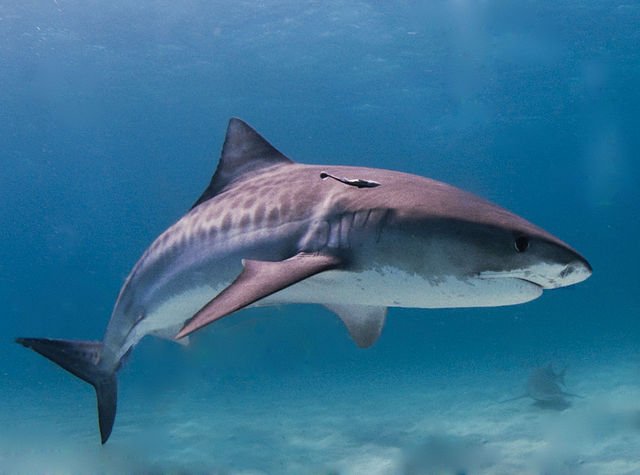Shark Week is back and for the next several days, you’ll be able to binge on Gopro footage of fisherman pointing at sharks circling their boats in choppy waters.
While Shark Week has its fair share of shark attack tales and lots of ogling, the week is mostly about honoring this utterly unique species that has managed to survive for more than 400 million years without bones — they just have just cartilage!

But even though sharks have thrived at the top of the marine food chain for so long, a range of factors are threatening their existence.
Before you get a fresh round of shark attack nightmares, here are 5 things to know about the state of sharks.
1. Climate change is changing how sharks travel
Like other creatures, sharks prefer certain conditions. As climate change impacts the acidity and temperature of the oceans, sharks are rerouting their normal paths and traveling to unknown, potentially strenuous, places. Since climate change is escalating, their paths will only become further strained. Ultimately, this could close off huge areas to sharks.

2. Climate change is affecting how sharks eat
Sharks always seem to be on the hunt, cruising through the water for new fish or other sharks to eat. As the oceans change, many fish populations are being forced to move, disrupting the availability of food. Sometimes types of fish are unable to find suitable habitats and their numbers plunge. Extreme overfishing is compounding this problem by pushing fish stock levels to dangerous lows.

3. Shark finning is terrorizing sharks
Shark finning involves catching sharks, violently cutting off their fins and then tossing their still-alive bodies back into the waters. There is a huge market for shark fin soup in China and even though the government has ramped up enforcement efforts against harvesting sharks, it still continues clandestinely. Shark finning has pushed some shark populations to below 95% of their normal levels. Sharks are also regularly injured by fishing vessels that trawl the oceans with curtain-like nets, indiscriminately capturing everything in their path including sharks.

4. Pollution is changing how they live
Oftentimes, the oceans are treated like a dump. Nearly all boats deposit oil and human waste into the waters and toxic land activities are regularly diverted into the oceans. Sharks absorb these chemicals and their bodily functions can be disrupted. Sharks are also threatened by all the garbage that winds up in the oceans that they can get entangled in or accidentally swallow.

5. Sharks are resilient, but humans are relentless
There are more than 500 types of shark living today. Sharks have existed for more than 400 million years, flawlessly dominating the waters. Today, however, they face grave threats. Humanity is proving frighteningly adept at pushing species to the brink of extinction and, despite their adaptive prowess, sharks are no different.
But this can be reversed. Humans can help sharks thrive for another 400 million years.
Instead of making it even harder for them to adapt, humans should be actively rehabilitating their environments and promoting their reproduction.
Every one can pitch in. In the meantime, for a guide on what to watch next week, go here!